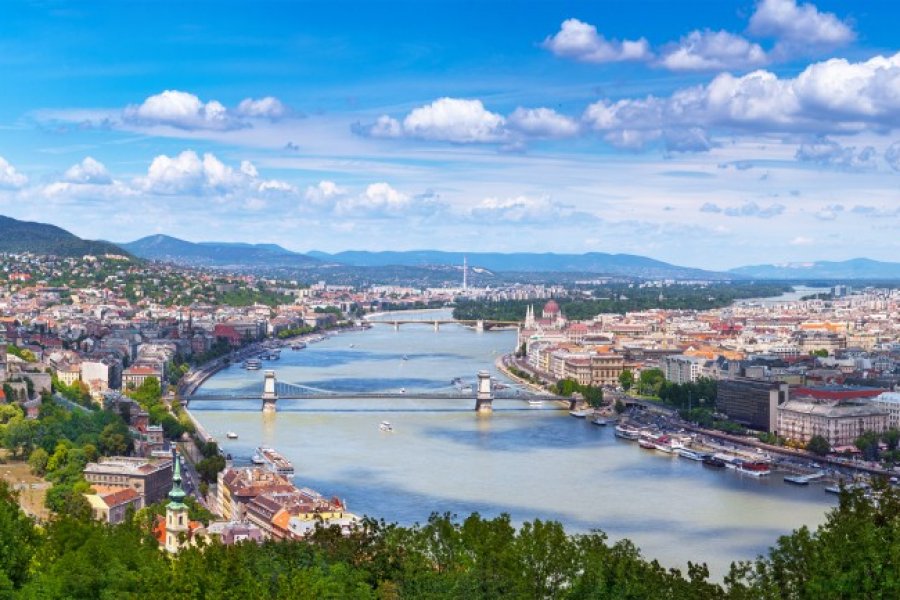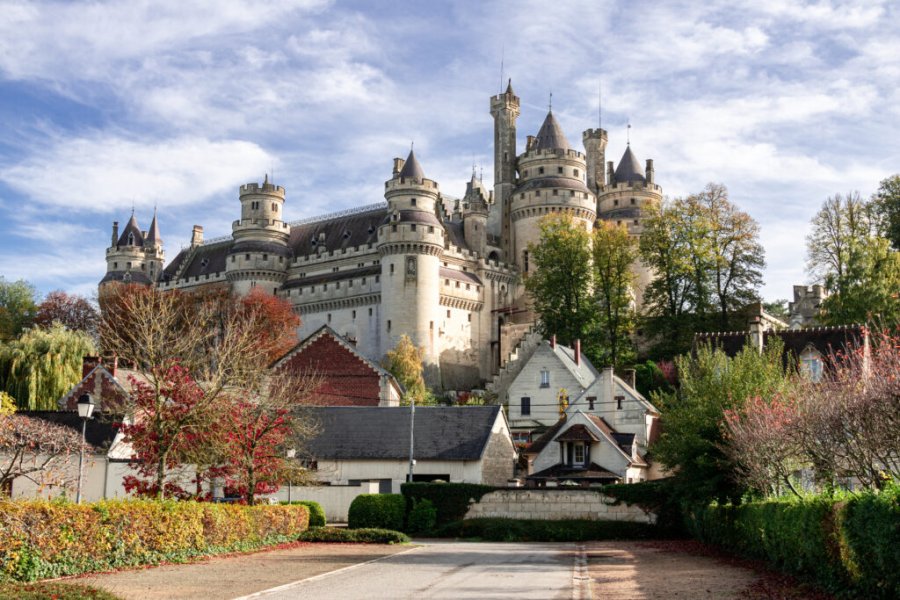Budapest and its surroundings
Highlights of the trip
During your stay you can enjoy the following highlights: Culture / Heritage, Discovery, Adventure / Sports & Leisure.
Best times to go
The best time(s) to go is/are : Printemps, Eté, Automne, Hiver.
Where to stay in : Sopron ?
The map of your stay "Budapest and its surroundings"
Detail of the stay : Budapest and its surroundings
How to get there - Sopron
Buda, the castle district and Mount Gellért
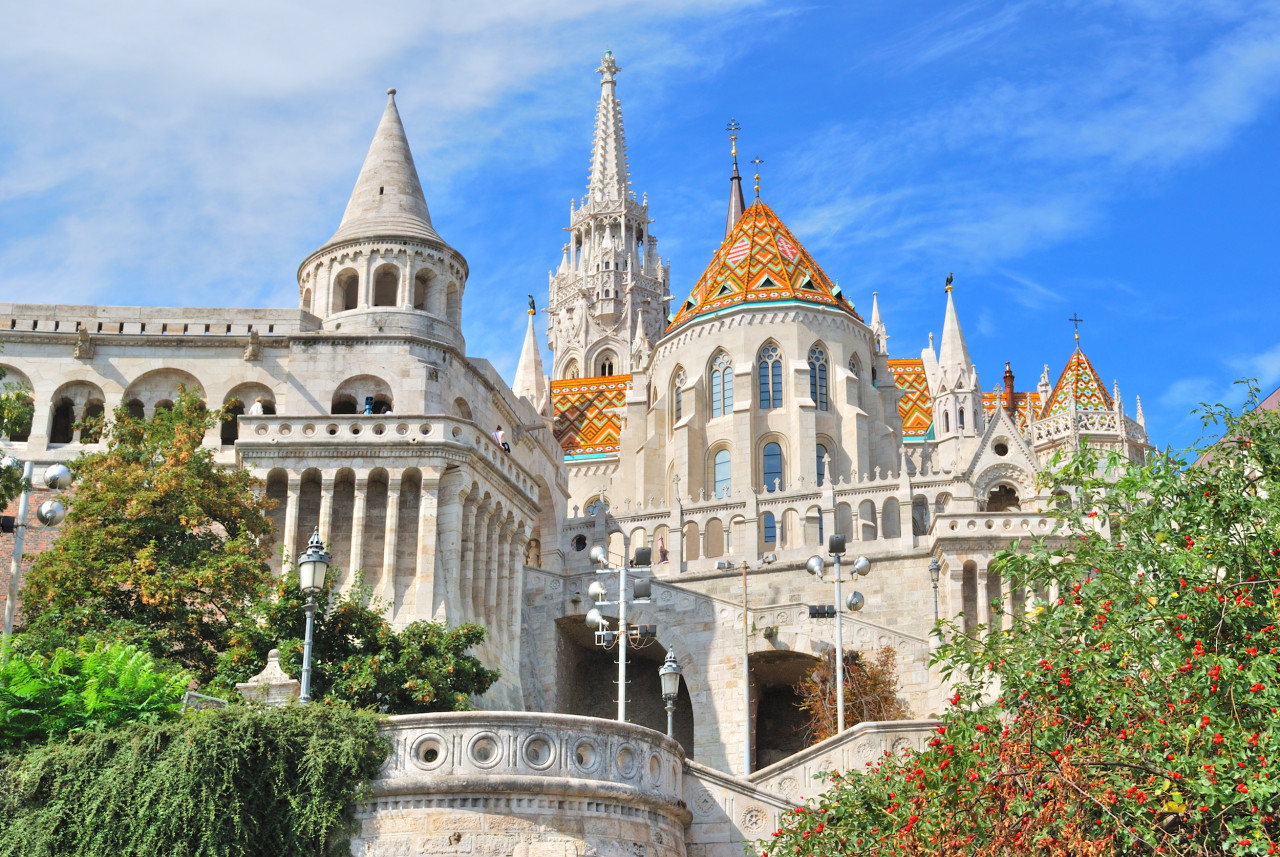
Steps: Budapest
Visiting Budapest means meeting three cities, Buda, Pest and Óbuda, which were only unified in 1873. The discovery of the historic soul of the capital is centred around the castle (Várhegy) and its green neighbour, Mount Gellért (Gellérthegy).
From Deák tér, go to Széchenyi Square (formerly Roosevelt Square) via József Attilla Street, one of Hungary's greatest poets, and discover Gresham Palace and the Academy of Sciences. In front of you opens the Chain Bridge (Lánchíd), the oldest bridge in the city. Cross it to reach Clark Ádám tér, from where the funicular takes you to the Royal Palace. You can also reach the castle by foot via the King's Staircase (Király Lépscő). From the Royal Palace, which houses the Széchenyi National Library and two museums (the Hungarian National Gallery and the City History Museum) you will discover a panoramic view of Pest and all the city's bridges. You can see the Castle Theatre (Várszínház, now Nemzeti táncszínház) in Rococo style on Dísz tér Square, walk along the old ramparts to the National Archives and Bécsi kapu, the gateway to Vienna, where the main streets of the hill meet. Walk past the Lutheran temple and the Mary Magdalene Tower, then take Országház Street to Mathias Church (Mátyás Templom), whose roofs are covered with coloured tiles and in which the Habsburg kings were crowned. In front of the church, the Baroque column of the Holy Trinity, which was erected against the plague, marks the highest point on the castle hill.
Behind the church stands the Fishermen's Bastion, named after the League of Danube Fishermen who were to defend this part of the ramparts, as well as the statue of St Stephen, the founding king of Hungary.
Stroll through the streets surrounding the church. Let yourself be tempted by one of the typical cakes of the famous Ruszwurm pastry shop. Come down from the hill by the stairs of the Fishermen's Bastion, then by the countless stairs that lead to Batthyány Square. Get on the tramway No. 19 along the Danube on the Buda side and get off at the Szabadság híd (Freedom Bridge) at Szent Géllert tér station, you are in the square of the famous Art Nouveau style Hotel Gellért, which has a spa (the Gellért baths) and a very popular wave pool.
After having taken a look at the entrance to the baths, you can climb Mount Gellért by the small paths to reach the citadel, the majestic Statue of Liberty at the top. Go down again enjoying the view of the Danube and cross the Liberty Bridge to return to the banks of Pest.
Places of interest : MUSÉE D'HISTOIRE DE LA VILLE (VÁROSTÖRTÉNETI MÚZEUM) PLACE SZÉCHENYI (SZÉCHENYI TÉR) TEMPLOM UTCA / TEMPLE LUTHÉRIEN (EVANGÉLIKUS TEMPLOM) PONT DE LA LIBERTÉ (SZABADSÁG HÍD) PONT DES CHAÎNES (SZÉCHENYI LANCHÍD) PALAIS GRESHAM (GRESHAM PALOTA) ACADÉMIE HONGROISE DES SCIENCES (MTA) GALERIE NATIONALE (MAGYAR NEMZETI GALÉRIA) ÉGLISE MATHIAS (MÁTYÁS TEMPLOM) COLONNE DE LA TRINITÉ (SZENTHÁROMSÁG OSZLOP) TOUR MARIE-MADELEINE (MÁRIA MAGDOLNA TORONY) PORTE DE VIENNE (BÉCSI KAPU) BASTION DES PÊCHEURS (HALÁSZ BÁSTYA) PLACE BATTHYÁNY (BATTHYÁNY TÉR) PALAIS ROYAL (BUDAVÁRI PALOTA) CITADELLE (CITADELLA)
Walk in classic Pest
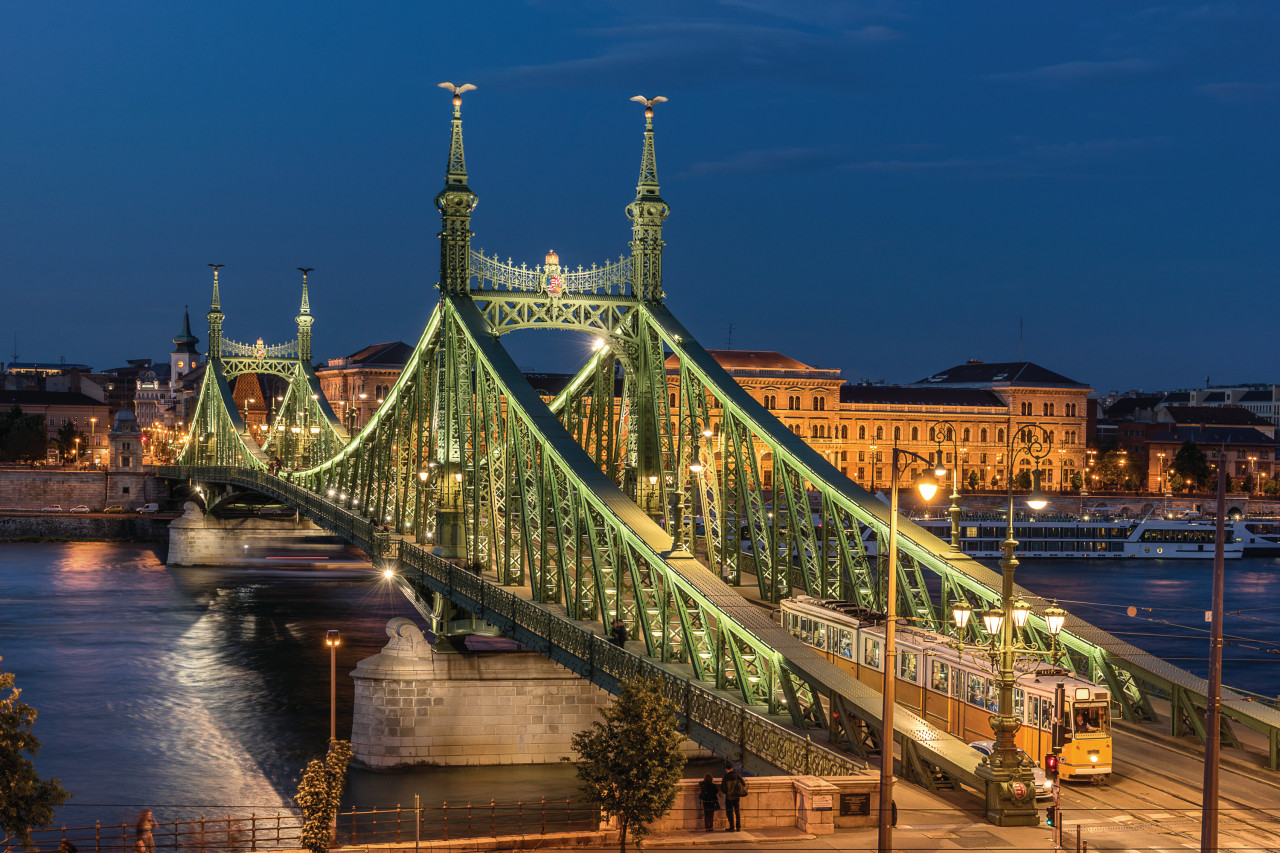
Steps: Budapest
From Deak tér, reach Place Vörösmarty and the famous Café Gerbeaud and head for Dunakorzó, the walk along the Danube, from where you can enjoy an exceptional view of the river, the castle hill and the citadel. Walk along the korzó to Petofi Square. You will pass in front of the Vigadó concert hall, the Serbian Orthodox Baroque church and arrive at the foot of the statue of Sándor Petofi. Turn left to take the Pianista utca, where the former Faculty of Arts is located, and join Ferenciek Square. On this square, take a look at the very beautiful passage of Paris built in 1909 and which mixes styles (not always open). Cross over to the other side of Ferenciek Square. After the Franciscan church and the University Library, you can take a break at the famous Café Central (Centrál Kávéház), an 1887 literary and artistic café restored in a 1920s style. Join the pedestrian street Váci by Arany street to the Grande Halle, the largest central market of the late 19th century. Also admire the neo-Renaissance style university of economics built by the same architect as the halls. Head for the main boulevard towards Kálvin Square and Ráday Street, lined with café terraces, then go to the Hungarian National Museum (Magyar Nemzeti Múzeum) founded by Count Széchenyi in 1802. Continue to Astoria Square where the famous hotel of the same name is located. A little further on, on the right side of the boulevard, begins the Jewish quarter and the largest synagogue in Europe. Then return to the boulevard to reach Deák Square and go to the colossal St. Stephen's Basilica, inspired by the Neo-Renaissance era. Take Október Street 6 to the main Freedom Square, Szabadság tér, where there is a monument honouring the Soviet liberators of 1945 and the impressive stock exchange building, formerly the headquarters of Hungarian TV. From this square, go through Honvéd Street and Hold. You will discover Art Nouveau buildings (Hungarian Art Nouveau House, Postal Savings Bank) and reach the Parliament (Országház). Also on Kossuth Lajos Square (Parliament Square), the Ethnographic Museum and the Ministry of Agriculture. On the banks of the Danube, you can take the tramway No. 2 along the Danube to return to Deák tér.
Places of interest : MUSÉE ETHNOGRAPHIQUE (NÉPRAJZI MÚZEUM) PLACE KOSSUTH (KOSSUTH TÉR) PARLEMENT (ORSZÁGHÁZ) ÉGLISE ORTHODOXE SERBE (SZERB ORTODOX TEMPLOM) CAISSE D'ÉPARGNE (ORSZÁGOS POSTATAKARÉKPÉNZTÁR) BASILIQUE SAINT-ÉTIENNE (SZENT ISTVÁN BAZILIKA) PLACE DE LA LIBERTÉ (SZABADSÁG TÉR) MAISON BEDŐ (BEDŐ-HÁZ) ÉGLISE FRANCISCAINE (FERENCES TEMPLOM) PLACE VÖRÖSMARTY (VÖRÖSMARTY TÉR) GRANDE SYNAGOGUE (NAGY ZSINAGÓGA) HALLE CENTRALE (NAGYVÁSÁRCSARNOK) MUSÉE NATIONAL HONGROIS (MAGYAR NEMZETI MÚZEUM)
Andrássy út and Városliget
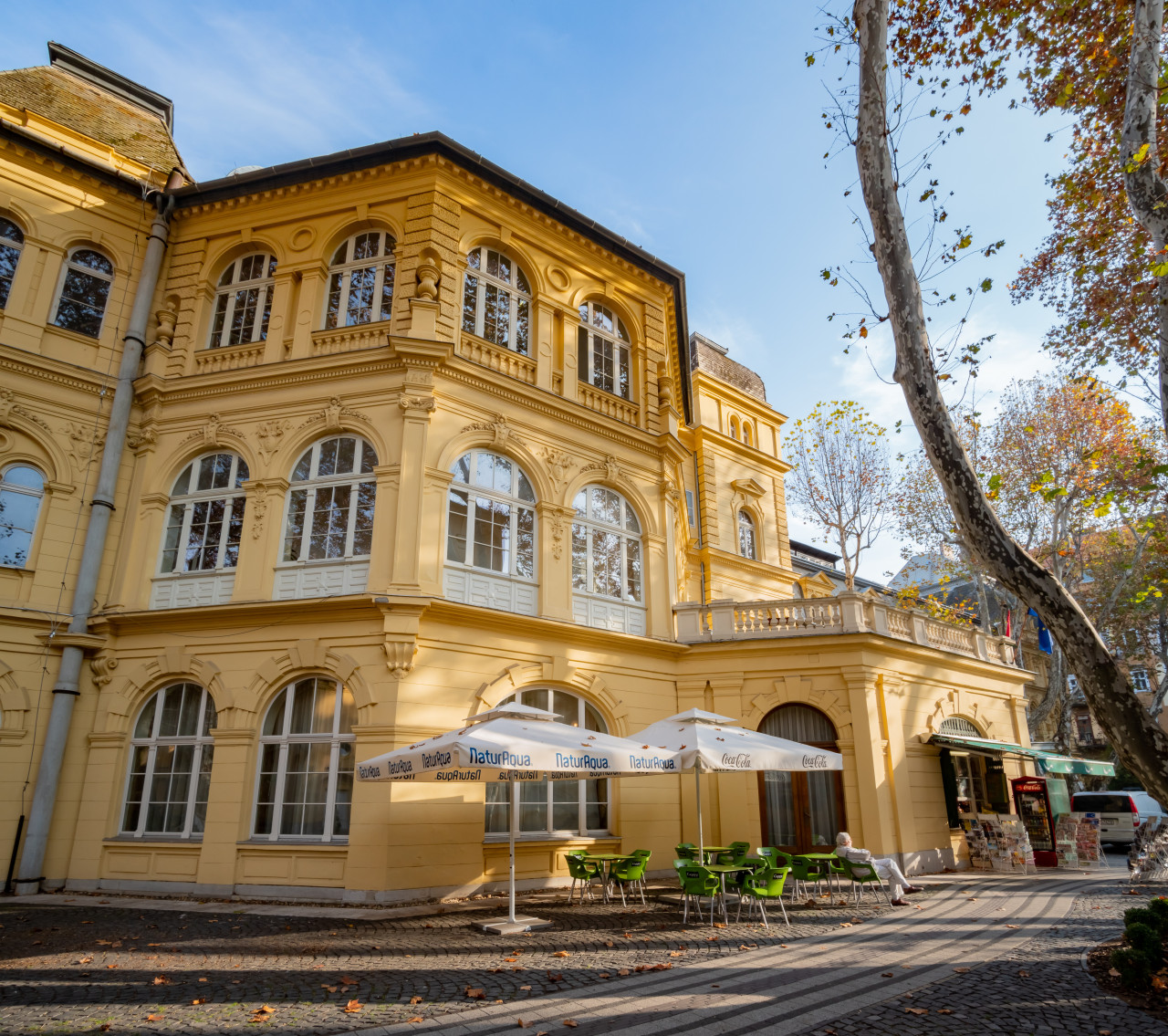
Steps: Budapest
The most elegant avenue in Pest, starting in Deák tér, extends almost three kilometres to Bois-de-la-Ville. On your left, you will see the Hungarian National Opera opposite, the Dreschler House. A little further on, the Muvész pastry shop and a famous tea room decorated with mirrors in golden frames. At the first major crossroads with Nagymezo Street is Budapest's Broadway with the Thália Theatre, the Operetta Theatre, the Moulin Rouge and the Mai Manó House (Museum of Photography). Continuing on to Andrássy út, you arrive at Franz Liszt Square, which is full of cafés and on which there is the statue of the musician, the most Hungarian of Austrians, and the Academy of Music. Admire the very beautiful entrance of this academy and enter the interior, now open for visits and concerts, it regained its full splendour in 2013.
Andrássy Avenue then leads to a large octagonal crossroads called Oktogon and a popular meeting place. Continue on the avenue, while taking a look on both sides lined with magnificent private mansions, most of which house embassies. You will pass in front of the House of Terror and notice the Kodály körönd Square for its magnificent painted facades that reflect the architectural refinement of Budapest. At the end of the avenue, you will arrive at the main square of Les Héros (Hősök tere). On the left side, the Museum of Fine Arts, on the right left, the National Gallery of Modern Art. Enter the Bois-de-Ville where you can relax and refresh yourself by the shores of a canoeing lake transformed into an ice rink in winter. You will find the famous Széchenyi baths (Széchenyi Fürdő), an Art Nouveau zoo classified as a Historic Monument, an eclectic castle parc d'attractionsand a castle (château de Vajdahunyad). Near the baths, you can board Budapest's oldest metro (földalatti) and return to Deák tér.
Places of interest : MUSÉE DES BEAUX-ARTS (SZÉPMŰVÉSZETI MÚZEUM) CHÂTEAU DE VAJDAHUNYAD GALERIE D'ART MODERNE (MŰCSARNOK) PARC D'ATTRACTIONS (HOLNEMVOLT PARK, EX-VIDÁM PARK) BOIS-DE-LA-VILLE (VÁROSLIGET) / MILLENIUM HÁZA PLACE DES HÉROS (HŐSÖK TERE) OPÉRA NATIONAL HONGROIS MAISON DE LA TERREUR (TERROR HÁZA) MAISON MANÓ MAI (MAI MANÓ HÁZ) ZOO (ÁLLATPARK)
Szentendre, picturesque Serbian city
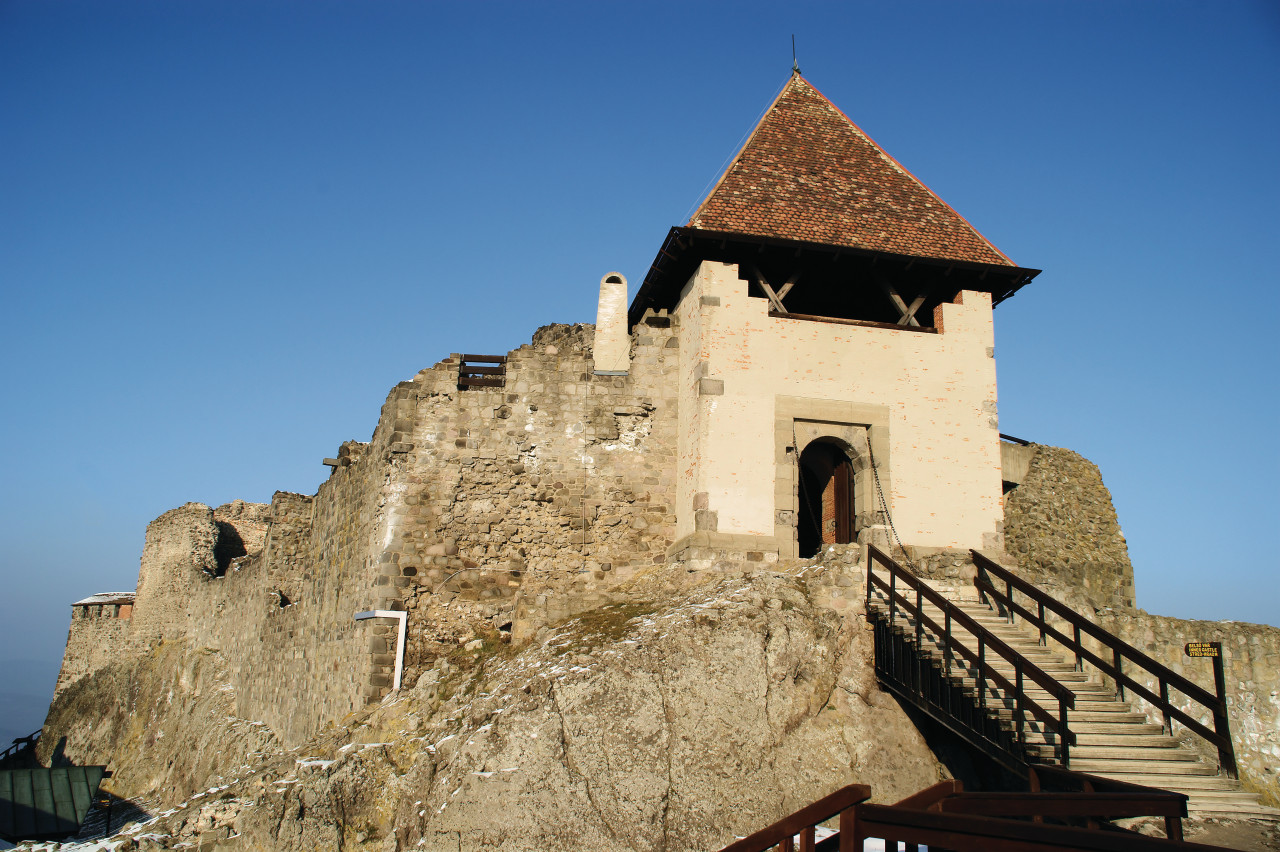
Steps: Budapest
At the Batthyány tér metro station (Buda), take the "Hév" suburban train to the Szentendre terminus. 18 km from Budapest, we discover a unique old village of artists. The old colourful 18th century houses, alleys and terraces give this city an astonishing Mediterranean atmosphere. Stroll through the alleys, discover the artist galleries, the many Orthodox churches and stop in the main square. A pleasant walk through time and the Hungarian "Montmartre". On the outskirts of the city, the open-air museum brings together the most beautiful traditional houses of Hungarian popular housing
The Danube - Visegrád and/or Esztergom curve
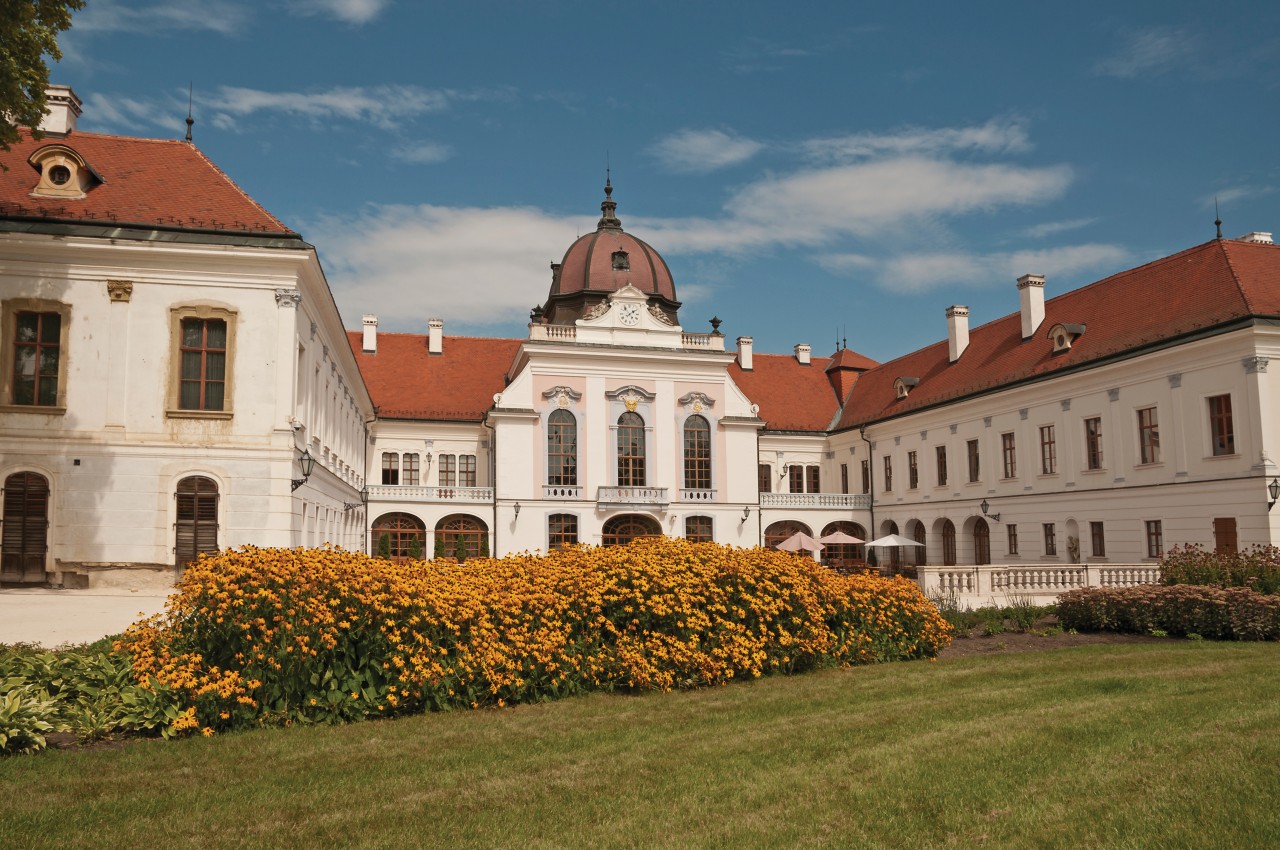
Steps: Esztergom
From Budapest, take Route No. 11 or take bus from the bus station of Árpád hid. Visegrád, 41 km from Budapest: Visegrád is a wonderful site. The citadel offers a breathtaking view of the Danube River. After climbing to the castle in ruins and the citadel (40 minutes walk), you will be able to descend by stopping halfway through the Solomon Tower, the old tower tower that used to watch the river. Esztergom, 67 km from Budapest: Located on two hills, the small royal bourgado overlooks the Danube with its imposing basilica (Szent Adelbert Foszékesegyház) perched on a cliff. After discovering the splendid view of the Basilica on Slovakia, you can go back to the southern part of the plateau and discover the remains of the Royal Palace (Királyi Palota). The Christian Museum (Kereszteny Múzeum) and the Danube Museum also deserve a visit. Finish your tour by the picturesque old town.
Places of interest : BASILIQUE (BAZILIKA) TOUR SALOMON (SALAMON-TORONY) MUSÉE D'ART CHRÉTIEN (KERESZTÉNY MÚZEUM) MUSÉE DU DANUBE (DUNA MÚZEUM) PALAIS ROYAL (BUDAVÁRI PALOTA)
Gödöllő and the Eger region
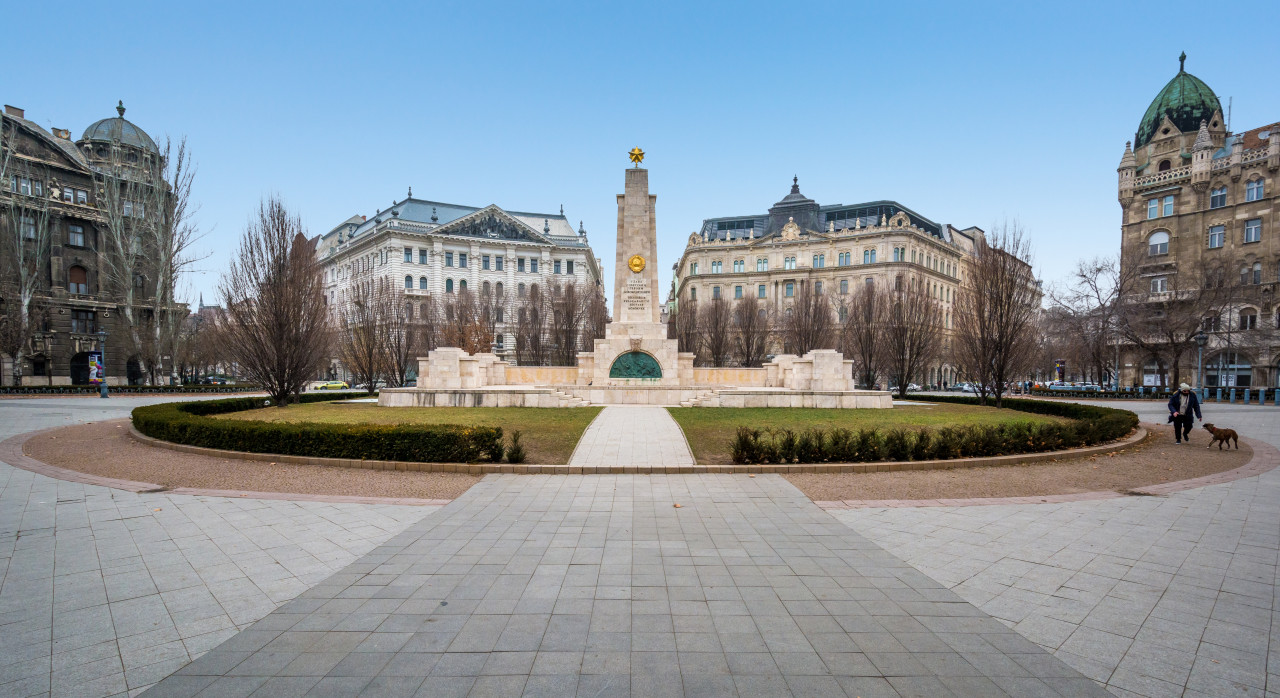
Steps: Eger
From Budapest, take the M3 motorway to the north-east or the suburban train (HÉV) from Örs vezér tere metro station. 28 km northeast of Budapest, passing through the first small picturesque villages of the Great Plain, is Gödöllo with its wonderful baroque royal castle, which was Sissi's castle and then a Soviet barracks for 40 years. 100 km from Budapest, passing through Hatvan, you will arrive in theEger region which is one of the great wine regions of Hungary where the famous red wine Egri Bikavér (Blood of theEger Bull) is produced. Envious of the courage that this beverage gave to the Hungarian soldiers, the Turks drank it, specifying that it was not alcohol, but bull's blood...
Situated in the hollow of the Bükk and Mátra mountain ranges, Eger is a very attractive small town with a diverse architecture. Its castle (Vár) dominates the city. Take a walk along the walkway to discover the different viewpoints and the fortress museum. In the city centre, you can visit the neoclassical basilica and the former archiepiscopal school in rococo style. The large Prior's Palace on Kossuth Lajos Street and theChurch of the Friars Minor on Dobó tér Square are also worth a visit.
Don't forget to stop for a glass of wine in one of the many taverns or cellars in the city.
Places of interest : BASILIQUE (BAZILIKA) CHÂTEAU (EGRI VÁR) CHÂTEAU ROYAL (GÖDÖLLŐI KIRÁLYI KASTÉLY) ÉGLISE DES FRÈRES MINEURS (MINORITA TEMPLOM)

